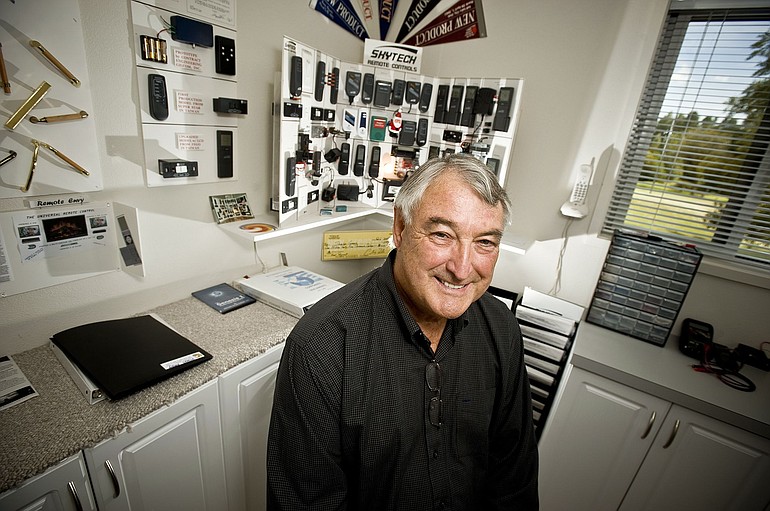Douglas Greene, the founder of Skytech Inc. in Vancouver, spent most of his 40-year career building and running businesses in the fireplace industry before he hit on his big idea.
At a time when most fireplaces still burned wood, Greene developed a remote control that helped propel natural gas fireplaces into the mainstream.
Greene sold Skytech in 2000 and is now an angel investor who volunteers for SCORE small-business counselors in Vancouver. He’s also a guest lecturer on innovation and entrepreneurship at Southeast Missouri State University’s Innovation Center in Springfield, Mo.
Here he talks to The Columbian about his experience as an inventor and his advice for turning an idea into a business.
How do you define the term “entrepreneur”?
It’s getting that idea and then doing something with it.
What makes a good idea?
Ideas are like raisins; when you sneeze they’re all over the place. You have to choose one that’s marketable.
What was your moment of inspiration?
I was on a sales trip to Taiwan. They were experimenting with gas fireplaces. At the time, all of the stores (in the U.S.) were selling wood-burning only. (The Asian manufacturers) wanted a way to control their fireplaces remotely, and I saw an opportunity.
How did you get started?
I went to a trade show for garage door manufacturers and talked to a vendor who was selling remote controls. He said he couldn’t help me — their minimum order was 100,000 units — but he knew a guy in California. (The Californian) designed two prototypes for $8,000. Then, I met with manufacturers, figured out the base cost and pitched it to the fireplace companies.
How did the business do?
The market for gas fireplaces took off, and I was the only one making remote controls. That changed, of course, as the manufacturers started making their own. But by then I had an advantage: I was there first. I never patented anything. I would just improve it each year and they could never keep up with me. I reached $5 million in annual revenue by the time the business closed in 2000. The margins were obscene. There’s a tremendous opportunity in niche markets.
What do you tell your students who have ideas for a product or a business?
Opportunities for young entrepreneurs are greater than they were 10 years ago because the Internet provides so much information. You can get some friends or relatives to invest. Some people will take a chance on young people. I encourage them to start businesses.
Should they make their own products?
Licensing is a neat way to go. You don’t have to build a company on your own. Oftentimes it’s hard to get ideas into products. So sometimes you have to set up your own business and do your own manufacturing.
You had a lot of industry experience before you started your business. Do you have any advice for entrepreneurs who are starting a business in a new field?
They have to partner up with somebody. Find somebody with a financial background, a marketing background, etc. We call it networking now. You find someone that’s a good match. If that idea’s good, do it with one or two business partners. Just get out and generate some income.
Are you looking for business partners?
If it’s a good idea, yeah. I’m in a position to fund it.



